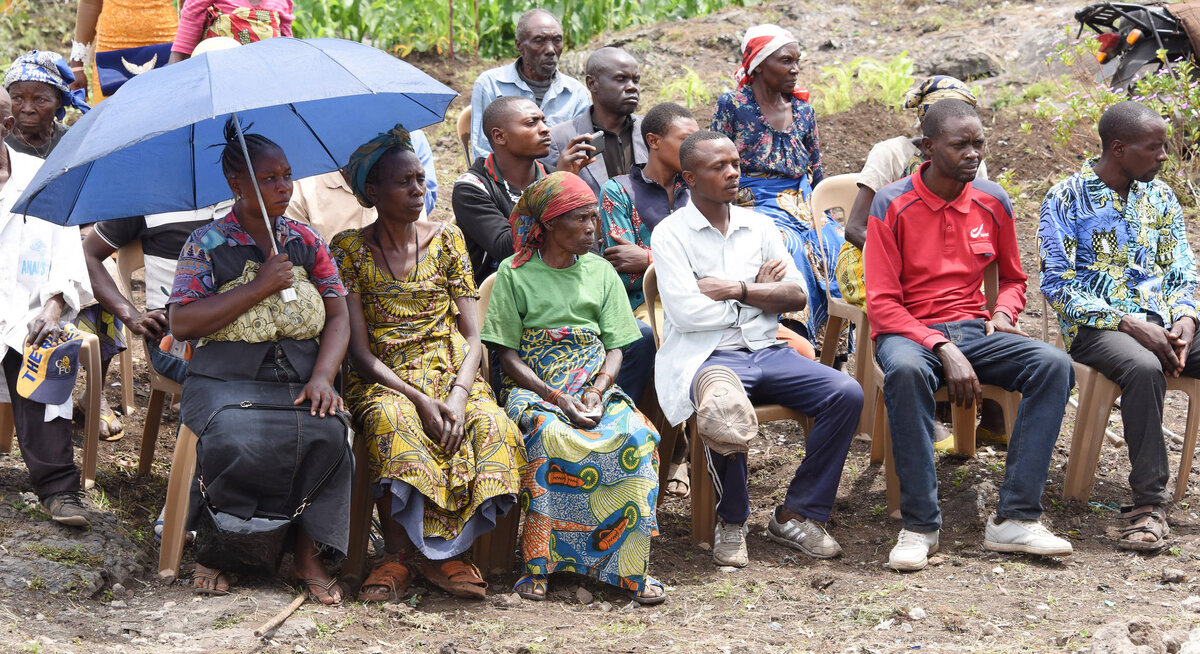
The Civil Affairs Section plays a crucial role in achieving MONUSCO's mandate by, among other things, engaging different stakeholders at the local and sub-national levels on issues pertaining to the Protection of Civilians (POC), stabilization, and the Security Sector Reform through its support to the electoral process. Civil Affairs serves as an effective interface between the wider Mission and the Congolese population and authorities at various levels. Civil Affairs establishes strong partnerships with local actors and builds their capacities to strengthen local protection mechanisms and reduce protection risks to civilians while preparing for a progressive and effective handover of the early warning, protection, and conflict resolution mechanisms to communities and authorities.
Civil Affairs is composed of 196 staff deployed across five field locations and Kinshasa. Most of the staff is deployed at the local level assisting response by communities, local authorities, and MONUSCO to the evolving protection challenges. The Section, therefore, plays a key role in supporting the Mission's mandate due to its proximity to local realities and dynamics.
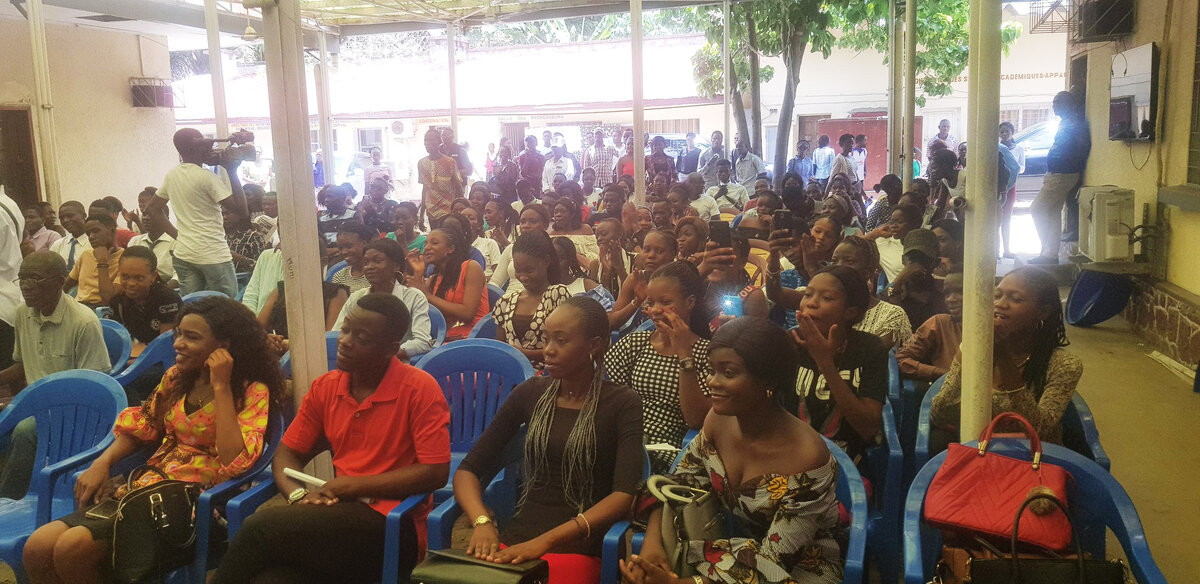
Strategic priorities
Based on the priorities for the Mission outlined in the UN Security Council Resolutions 2666, Civil Affairs focuses on the following main strategic priorities:
Protection of civilians under threat of physical violence by taking all necessary measures to ensure effective, timely, dynamic, and integrated protection.
Civil Affairs supports the Mission’s comprehensive strategies to protect civilians by addressing threats posed by armed groups to ensure a coordinated and locally owned approach tailored to the context of each province and Field Office. This includes a dynamic, integrated, and comprehensive approach to protect civilians to reduce threats to a level that can be managed by the Government in conflict-affected areas. Emphasis is placed on strengthening community-based PoC mechanisms to advance resilience and early warning, reinforcing security governance to enhance participatory security governance, and seeking to capture and analyze perception data through perception surveys on peace and stabilization to understand the population’s needs and opinions, assess local perceptions of the MONUSCO Force’s engagement, inform analysis, and evidence-based programming.
Civil Affairs has developed and maintains various tools to respond to key protection needs in its operations, including the Community Liaison Assistants (CLAs), Community Alert Networks (CAN), Local Protection Committees (LPC), and the Community Protection Plan (CPP):
Community Liaison Assistants (CLA): Civil Affairs currently manages 147 CLAs (including 16 women), with over 73% embedded with MONUSCO Force deployments in 44 strategic hotspot areas. CLAs are national staff who are deployed in military bases and serve as an interface between the Mission, MONUSCO’s military, the Congolese population, and local authorities at the field level. They play a vital role in developing and sustaining community relations with the Mission, particularly with deployed Mission Forces, building confidence among the population, and monitoring security alerts. CLAs support MONUSCO Peacekeepers to fulfill the PoC and stabilization mandate through active liaison with the community, information gathering, identifying risks to civilians, performing protection analysis, and developing locally tailored and demand-driven Community protection plans in cooperation with MONUSCO’s military. CLAs also facilitate information exchange for key protection actors including national authorities, UN Agencies, and NGOs. CLAs play a key role in managing MONUSCO’s early warning and response system (CAN), supporting Local Protection Committees, and the update of Community Protection Plans (CPP).
Community Alert Network (CAN): The Community Alert Networks (CANs) are an Early Warning System (EWS) mechanism enabling communities, including women and youth in isolated areas to directly contact MONUSCO Forces or CLAs via mobile phones or High-Frequency radios (CAN HF) to prevent, mitigate or stop imminent threats to their communities. When alerts are received, MONUSCO may intervene directly and/or refer alerts to competent local authorities and security forces i.e., PNC or FARDC. Following the reception of a CAN alert, MONUSCO triangulates the information and addresses verified alerts or refers them to relevant local PoC actors, particularly in areas where MONUSCO is not present. In conformity with the Mission's transition plan, Civil Affairs increasingly engages with local actors and mechanisms on early warning in support of the protection through the projection model. There are currently 57 operational CANs reaching civilians in more than 1900 villages in high-risk areas.
Local Protection Committees (LPC): With the support of local communities, CLAs establish Local Protection Committees (LPC) to promote ownership of protection mechanisms at the local level within their areas of deployment. LPCs are regularly trained by CLAs on the protection of civilians and the early warning mechanism which facilitates their collaboration with POC actors, as well as the drafting of the Community Protection Plan (CPP) which identifies protection threats and mitigating measures.
Community Protection Plans (CPP): The Community Protection Plan (CPP) is a POC tool created by Civil Affairs and managed by CLAs and LPCs. The CPP provides information on how the population and protection actors can address imminent protection risks in their communities. The CPP highlights an analysis of the context, the list of threats, the locality, vulnerable groups, incidents and authors, and the mitigating measures.
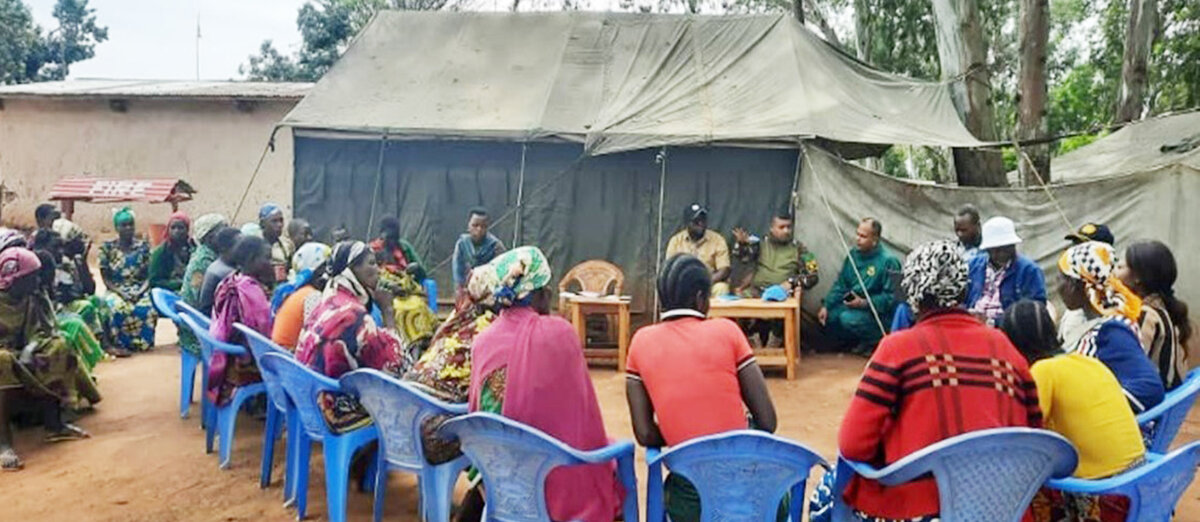
Joint project with UNDP and HHI on the perception of security and justice
Since 2014, Civil Affairs and UNDP in collaboration with the Harvard Humanitarian Initiative (HHI), local Universities, and in coordination with the Ministry of Justice and provincial governments of North Kivu, South Kivu, and Ituri have been implementing a project on the "collection and analysis of local perceptions on peace consolidation and stabilization in DRC."
The project administers opinion polls aimed at capturing local perceptions of security, justice, and social cohesion, as well as stabilization and peace consolidation efforts. Twenty-four quarterly polls have so far been conducted on local perceptions of peacebuilding and reconstruction viewed through security and justice in these three provinces in Eastern DRC. With over 300 indicators collected in each poll, the surveys provide data that facilitated the understanding of the population's needs and opinions on the stabilization and consolidation of peace and provides valuable information for planning, programming, and decision-making for national and international actors. In addition to regular polls, Civil Affairs facilitates a specific poll around and within MONUSCO bases to assess the engagement of MONUSCO’s military with the local population.
Within the framework of the transition, a new project has been developed to continue the collection and analysis of local perception with a focus on the reinforcement of national capacities thus enabling the National Institute of Statistics (INS) and local universities to play a key role in data collection and analysis. The National Institute of Statistics has become a key actor and has seen its network extended with the constitution of the “registre des enqueteurs” in each territory of Ituri, North Kivu, and South Kivu.
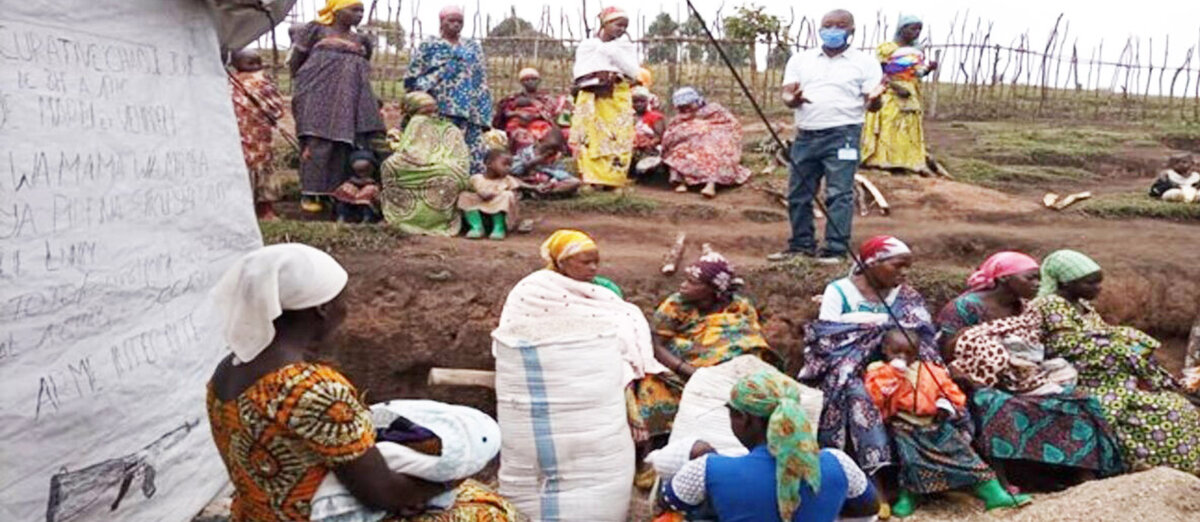
Disarmament, demobilisation, reintegration (DDR) and stabilisation
Civil Affairs addresses the root causes of conflicts and promotes the prevention, mitigation, and resolution of inter and intra Community conflicts through capacity building, coaching, local mediation, dialogue, and community sensitizations. Civil Affairs promotes constructive dialogue, peaceful cohabitation, and inclusive participation in dialogue processes through community sensitizations targeting local authorities and community leaders. The section also paves the way for sustainable structured dialogue and supports Local Conflict Resolution Structures such as the Commissions Consultative de Règlement des Conflits Coutumiers (CCRCC) and Barazas Intercommunautaire. In line with the implementation of the P-DDRCS, CA contributes to the elaboration and validation of the provincial operational plans of South Kivu and Ituri. Civil Affairs will continue to support through dialogues and awareness-raising campaigns with communities to prepare them for the return of ex-combatants to promote social cohesion, reduce the risk of resurgence of violence and facilitate their reintegration into the community. Civil Affairs also strengthens engagement with civil society actors to advance local governance, democratization efforts, and peace by maintaining engagement and enhancing understanding of the civil society dynamics, structuring, revitalizing civil society organizations, and reinforcing the capacity of civil society organizations. Civil Affairs also mitigates anti-MONUSCO sentiments by highlighting the Mission’s contributions to peace and security and thereby strengthening its credibility and confidence among the local population.
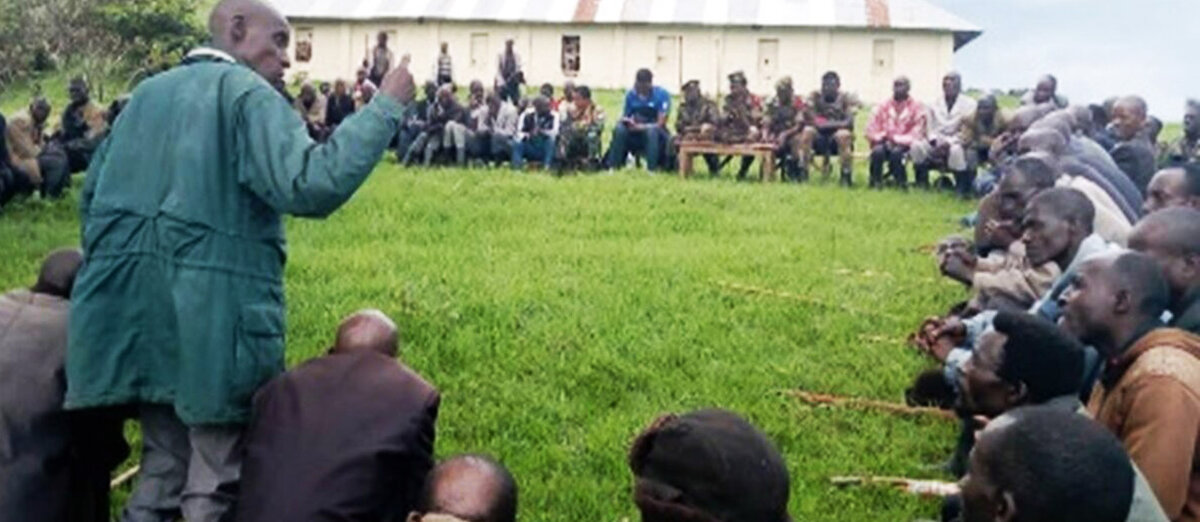
Security Sector Reform (SSR)
Civil Affairs supports the 2023 electoral process in the three provinces where MONUSCO is still deployed without prejudice to Civil Affair’s ability to deliver on its priority tasks, as appropriate and in coordination with Congolese authorities, the UNCT, regional and international actors, to facilitate a peaceful electoral cycle. Civil Affairs will contribute through capacity building of Civil Society actors through local structures to improve their engagement to limit the risks of elections-related violence and the manipulation of youths. Civil Affairs will revitalize or facilitate the early warning system in identified electoral hotspots and support civil society organizations, community-based and faith-based organizations in sensitizing the local population on civic education.
 UN
UN United Nations Peacekeeping
United Nations Peacekeeping